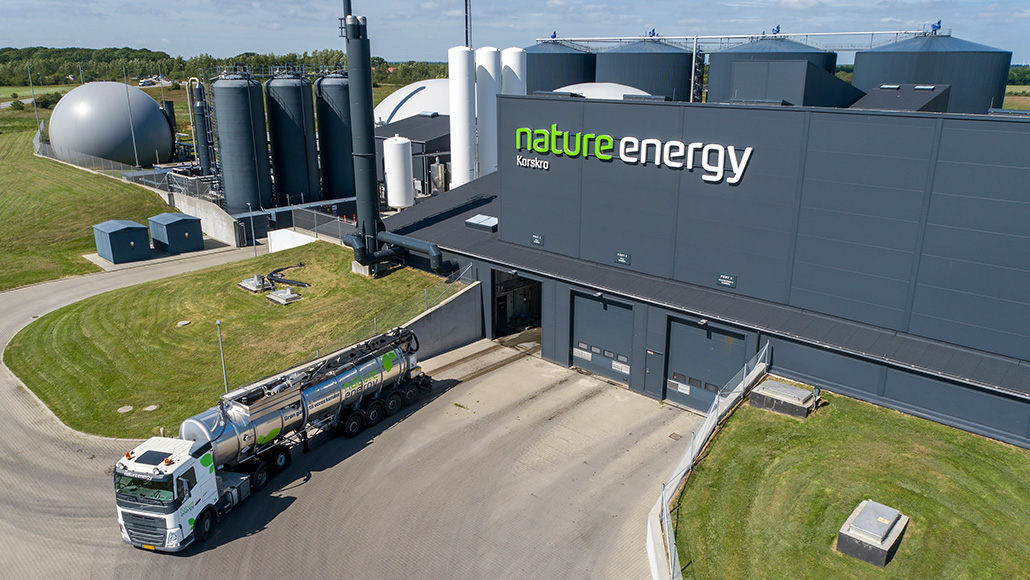Business and property
Mobility
Shell is one of the world’s largest mobility retailers, by number of sites, with more than 46,000 Shell-branded mobility locations in more than 80 markets at the end of 2022. We operate different models across these markets, from full ownership of retail sites through to brand licensing agreements.
Every day, around 32 million customers visit our mobility locations for an evolving range of quality fuels, including electric vehicle charging, and convenience and non-fuel products and services. We offer our business customers Shell Fleet Solutions, through which they can obtain items including fuel cards, road services and carbon-offset offers. Beyond our mobility locations, we also serve electric vehicle customers at their homes and workplaces through Shell Recharge Solutions, and at on-street locations through Ubitricity.
In addition to fuels, we are expanding our convenience and non-fuel retail offer to cater to more of our customers’ needs. At many of our sites, we offer a range of convenience items, including beverages and fresh food, and services such as lubricant changes and car washes. At the end of 2022, Shell operated 12,500 convenience stores worldwide and we expect to grow this number to 15,000, including Shell-branded mobility locations by 2025. We have upgraded more than 1,500 stores with our Shell Café premium fresh coffee and food offer since launching in 2021.
We remain committed to developing traditional fuels for drivers of internal combustion engine vehicles. Aided by our partnership with Scuderia Ferrari, we have concentrated on developing fuels with special formulations designed to clean engines and improve performance. In 2022, we launched a new and improved formulation of Shell V-Power across multiple markets, with further roll-out planned for 2023. We sold fuels under the Shell V-Power brand in 69 markets in 2022.
We are also expanding networks of refuelling stations of lower-emission fuels, including biofuels, hydrogen, and various gaseous fuels such as LNG and bio-LNG. We have more than 50 hydrogen retail sites in Europe and North America, where drivers can fill up their vehicles with hydrogen fuel. In nine markets, Shell Mobility provides customers with the opportunity to compensate their carbon emissions, including through carbon credits.
Shell Mobility aims to take a leadership position in the energy transition by marketing more and cleaner fuels for our customers. At the end of 2022, Shell owned or operated around 139,000 charge points, including more than 28,000 charge points at Shell forecourts, on-street locations, mobility hubs and destinations like supermarkets.
In January 2022, Shell opened its first electric vehicle charging hub in the UK in Fulham, London, where petrol and diesel pumps at an existing fuel station have been replaced with charge points. Shell Fulham features nine high-powered, ultra-rapid 175 kW charge points.
Lubricants
Shell Lubricants has been the number one global finished lubricants supplier in terms of market share for 16 consecutive years, according to Kline & Company data for 2021. Shell lubricants are available across more than 160 markets for passenger cars, motorcycles, trucks, coaches, and machinery used in manufacturing, mining, power generation, agriculture and construction.
We also make premium lubricants for conventional vehicles and Shell E-fluids for electric vehicles using gas-to-liquids (GTL) base oils that are made from natural gas at our Pearl GTL plant in Qatar. See “Integrated Gas”.
We have a global lubricants supply chain with a network of 32 blending plants, four base oil plants, ten grease plants and six GTL base oil storage hubs.
Through our marine activities, we primarily provide the shipping and maritime sectors with lubricants. We also provide fuels, chemical products, and related technical and digital services. We supply more than 200 grades of lubricants and seven types of fuel to vessels worldwide, ranging from large ocean-going tankers to small fishing boats. Shell marine lubricant products are currently used in more than 10,000 vessels and are available in over 700 ports across more than 60 countries.
Sectors and Decarbonisation
Sectors and Decarbonisation sells fuels, speciality products and services including energy solutions that help customers reduce emissions in the aviation, marine, commercial road transport, and agricultural sectors, among others.
Shell Aviation provides aviation fuel, lubricants and low-carbon solutions globally. In February 2022, Shell became the first supplier of sustainable aviation fuel (SAF) to customers in Singapore. Together with Accenture and American Express Global Business Travel (Amex GBT), Shell launched Avelia – one of the world’s first blockchain-powered digital sustainable aviation fuel book-and-claim solutions for business travel. Avelia is designed to help trigger demand for SAF, providing confidence to suppliers like us to further increase investment in production, and in turn lowering the price point for these fuels.
Shell Marine offers a portfolio of marine fuels, lubricants and low-carbon solutions, with a supply network that covers key bunkering locations globally.
Shell is investing in a variety of fuels, technologies and solutions to support a decarbonised future for shipping. In June 2022, Shell and CMA CGM signed a non-binding memorandum of understanding to support the advancement of low-carbon marine fuels and innovative technical solutions, alongside a multi-year LNG supply agreement in the Port of Singapore from the second half of 2023.
Shell Commercial Road Transport provides fuels, lubricants and digital services to customers with heavy-duty vehicles in their fleets. In 2022, Shell expanded its LNG refuelling network to more than 60 operated sites, bringing the number of sites where Shell customers can access LNG in Europe to more than 160. In February 2022, Shell became the first fuel provider to offer customers in the Netherlands a blended product, by feeding a portion of Shell BioLNG into its entire LNG network.
Shell Bitumen supplies customers across 60 markets and provides enough bitumen to resurface 500 kilometres of road lanes every day. It also invests in research and development to create innovative products.
Shell Sulphur Solutions manages the complete value chain of sulphur, from refining to marketing. It provides sulphur for use in applications such as fertiliser, mining and chemicals. It also licenses Shell Thiogro technologies to create innovative and custom sulphur-enhanced fertilisers.
In 2022, around 9.5 billion litres of biofuels (2021: 9.1 billion litres) went into Shell’s fuels worldwide, which includes sales made by Raízen, our non-operated joint venture in Brazil (Shell interest 44%).
In 2022, Raízen produced around 3 billion litres of ethanol (2021: 2.5 billion litres) and around 4.8 million tonnes of sugar from sugar cane (2021: 4 million tonnes). The cellulosic ethanol plant at Raízen’s Costa Pinto mill in Brazil produced 26 million litres of ethanol in 2022 (2021: 19 million litres).
Renewable natural gas (RNG), also known as biogas or biomethane, is gas derived from processing organic waste in a controlled environment until it is fully interchangeable with conventional natural gas.
Shell is constructing two facilities which will convert dairy manure to RNG and which will be co-located at the Bettencourt Dairies in Wendell, Idaho, USA. Once operational, Shell Downstream Bovarius is expected to produce approximately 400,000 MMBtu a year of negative carbon intensity RNG. The second facility, Shell Downstream Friesian, is expected to produce approximately 350,000 MMBtu a year of negative carbon intensity RNG using cow manure from the dairy once operational.
In Europe, we are offering liquefied renewable natural gas (bio-LNG) to customers with trucks powered by natural gas. In 2022, in collaboration with Nordsol, we commenced production at our first European bio-LNG plant, in Amsterdam Westpoort, in the Netherlands. This made us the first fuel provider to offer a blend of bio-LNG throughout the entire LNG network in the Netherlands. We also began construction of a bio-LNG plant at our Energy and Chemicals Park Rheinland, scheduled to commence operations in 2023.

Building integrated renewable natural gas (RNG) value chain at global scale
On February 20, 2023, Shell announced it had completed the acquisition of Denmark-based Nature Energy, Europe’s largest producer of renewable natural gas (RNG) from biomass, for around $2 billion. The acquisition, which was announced in November 2022, helps accelerate our transition to become a net-zero emissions energy business by 2050 by offering our customers low-carbon fuels, which can help them decarbonise.
Nature Energy produces RNG from agricultural, industrial, and household waste. It has 14 operating plants and established supply infrastructure. The company produced around 6.5 million MMBtu in 2022 and has around 30 new plant projects in Europe and North America which could deliver up to 9.2 million MMBtu/year by 2030.
RNG, also known as biogas or biomethane, is chemically identical to conventional natural gas and can be used in our existing transmission and distribution infrastructure. This makes it a competitive option to help decarbonise hard-to-abate sectors, including commercial road transport, shipping, heating and heavy industry. The sustainability benefits are amplified by the processing and use of methane that would otherwise be released to the atmosphere from the decomposition of organic byproducts and waste.
Shell’s Powering Progress strategy seeks to deliver affordable, reliable, low-carbon energy to our customers.









